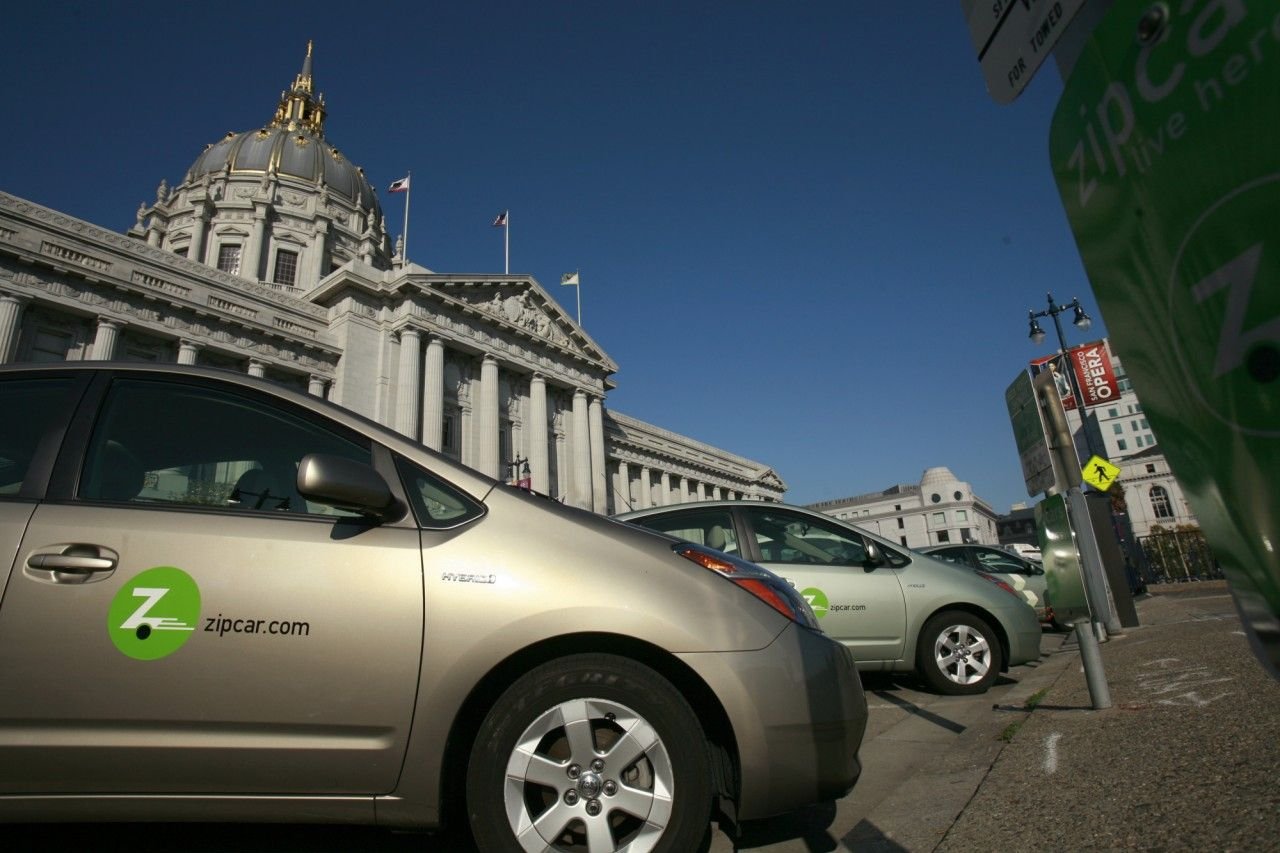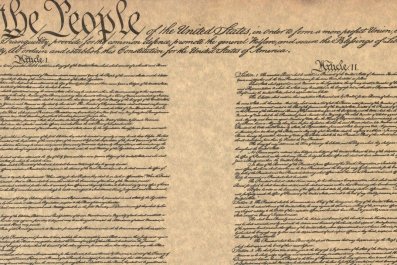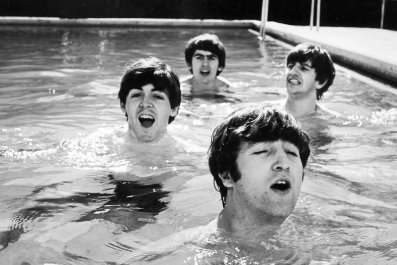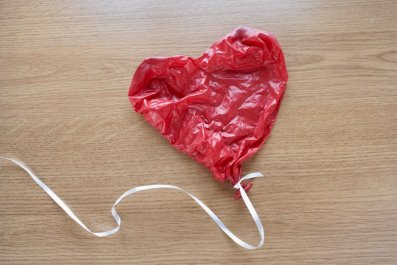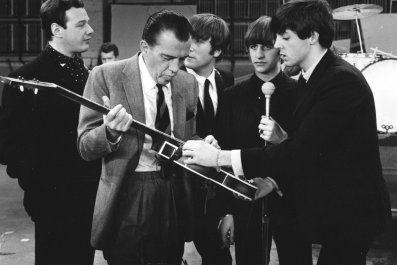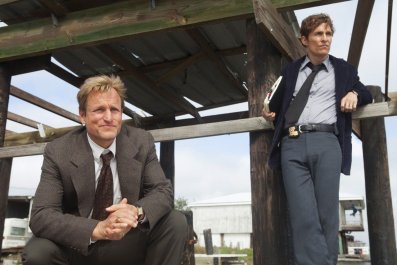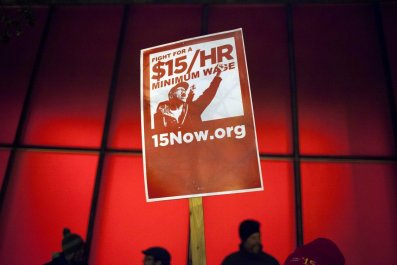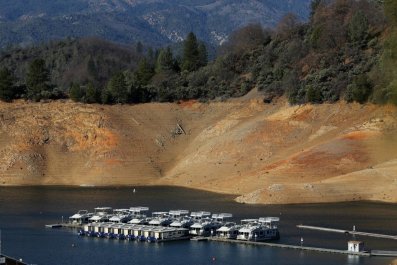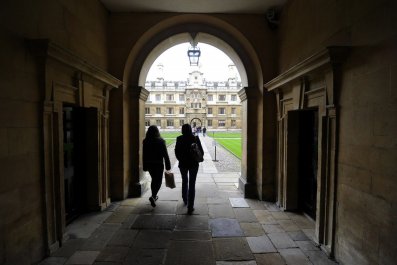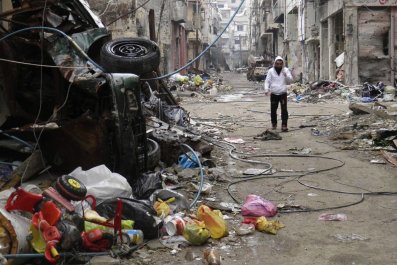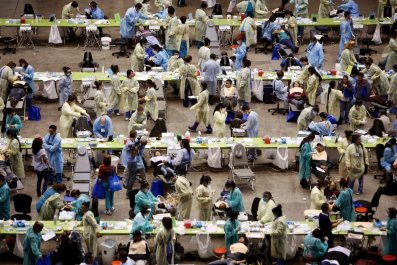Now that the car industry hired Bob Dylan to do a TV commercial, it's clear that an era is passing. The era of the car, that is. Dylan's been a shill for years. Pepsi. Victoria's Secret. He's as much a rebel rocker as Vladimir Putin is a friend of the Rainbow Coalition.
Technology is driving a fundamental change in the nature of work and consumerism, and those trends should mean a long-term decline in driving and car ownership in developed countries. More than likely, we hit the peak of car culture in about 2007.
You may have read the studies that show young people are driving less. Fewer members of the 18 to 21 crowd are even getting driver's licenses. Beyond that, a U.S. PIRG study shows that per capita driving is as low as it was in 1996, and PIRG speculates that the change is part of a permanent decline.
In the decade before 2008, U.S. auto sales averaged around 17 million vehicles a year. Last year was the industry's best since then, and sales hit about 15.6 million. Sales in January fell 3.1 percent.
Some of this can be written off as a by-product of the recession. If more people don't have jobs, they don't drive to work and don't have the money to buy cars. In that scenario, when the economy bounces back, driving and car sales bounce back with it.
Don't bet on it. There's something deeper going on.
When President Obama talked about job growth in his State of the Union address, everybody, of course, applauded. Job growth is like a shorter Oscars show - something we all want even if it's not realistic.
For more than a century, big corporations existed because it was cheaper and more efficient to gather and own talent and the means of production in-house than it was to go out and find whatever you needed whenever you needed it. But today, networks and software are changing that. Thanks to resources like LinkedIn, Quirky, data centers for hire and Chinese contract factories, it's becoming cheaper and more efficient for companies to hire out a lot of their work. The pace of this trend will only speed up.
This fuels a movement toward smaller, lighter companies at the core, and the core is where people will have "jobs" - full-time gigs sitting alongside colleagues who all have similar full-time gigs. The cores will shrink, leaving fewer of these jobs. Instead, companies will outsource everything they can.
Call this unscaling, or Don Tapscott's Wikinomics, or Dan Pink's rise of the Free Agent Nation. It means that more of the world's work will be done by the best people, wherever they happen to be. Jobs are being replaced by work. Employees are being replaced by the talent cloud - an ephemeral place where micro-entrepreneurs and small groups of skilled people connect to the companies that need them.
What does that mean for cars? The people in the talent cloud aren't driving downtown at rush hour to some galactic Death Star of an office weekdays. They're gathering in Google Hangouts and working at home or in neighborhood office co-ops, and popping out for occasional face-to-face meetings. They might be in a big city - where they choose to live because they like it, not because a corporation made them move there - or a small town in Oregon or India or Kenya.
Any way you put the pieces together, technology is changing the new workforce into one that doesn't have to drive as much. People will work and make money as much as ever, but if they're doing less driving, they might prefer to spend their money on iPads and web services and Mekong River cruises.
One noticeable way technology is impacting consumer behavior is the rise of the "sharing economy." That may sound like some idealistic flower-power concept that Dylan might've sang about back when he had our attention, but it's a big deal.
The sharing economy is the start of consumers outsourcing the assets they don't have to own. It is to consumers in the 2010s what "re-engineering" was to corporations in the 1990s: a way to slim down, spend smarter, and have more options. Technology such as the Internet, smartphones and cloud computing make it possible.
Cars are a perfect place to start. They are wildly expensive and, with the exception of minivans owned by suburban soccer moms with three kids, shamefully underutilized. The average U.S. driver is behind the wheel for 55 minutes a day. As Jeff Miller, founder of car-sharing company Wheelz, likes to say, "Does it really make sense that cars are parked 23 hours a day?"
Zipcar is one form of car sharing. It lets customers rent cars by the hour. Zipcar estimates that for every car made available for sharing, up to 15 fewer cars are on the road. RelayRides.com (which merged with Wheelz) is a website that helps car owners rent out their idle cars, which tends to optimize cars and allow fewer cars to serve more people. Another version of this, Lyft, is a site that lets a car owner get paid to give taxi-like rides to others.
The auto industry is fully aware of what's happening. General Motors, along with Google Ventures and other investors, put $13 million into RelayRides. Fontanalis Partners, which is run by Ford scion Bill Ford, invested in Wheelz early on.
These sites will awaken consumers to a new way of doing things, and getting places. If it becomes cheap and efficient to get a car anytime you want one, maybe it doesn't make sense to fork over $20,000 (not to mention the cost of insurance, gas, maintenance and parking tickets) to have your own. And if that works for cars, how about other things that sit idle much of the time? New York City is awash in shared Citibikes. A site called Neighborgoods lets people rent out that lawnmower or table saw sitting in your garage.
All in all, if fewer people commute each day to a corporate job, fewer people will need to own a car just to drive somewhere and then park for eight hours. And if more people are driving less and parking less, they'll have even less incentive to own a car if they can share one. Play out that algorithm, and you wind up with fewer cars in the system - permanently.
Which, among other benefits, will be good for the planet - a cause Bob Dylan might get behind when he's done selling cars and thongs.



